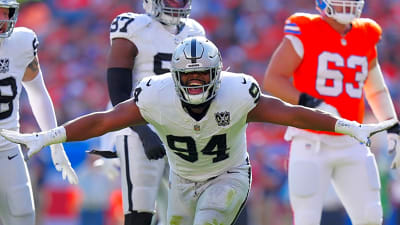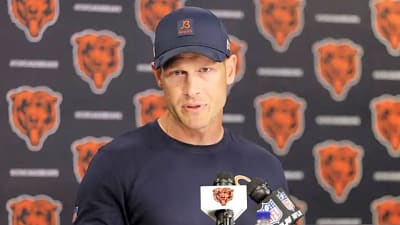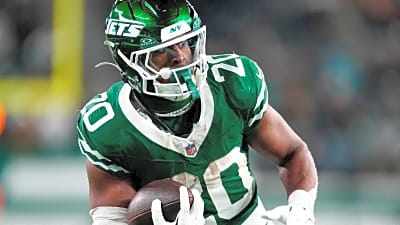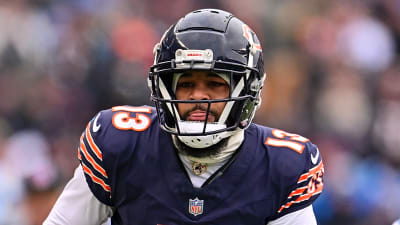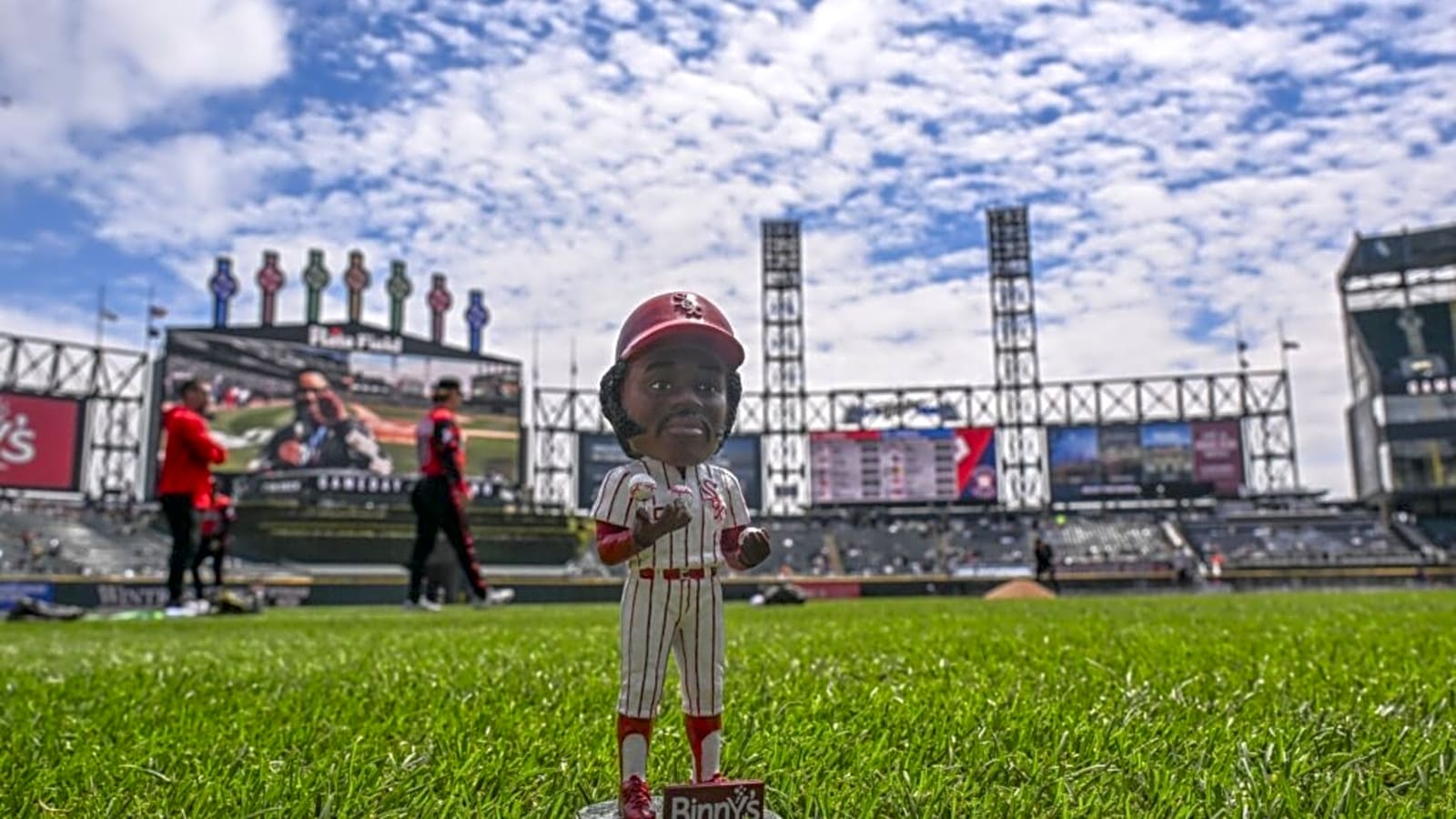
Dick Allen had a 1972 season for the ages, and nothing was more magical than the “Chili Dog Home Run.” That year, Allen hit .308/.420/.603, 37 HR, and 113 RBI for the Chicago White Sox while winning the American League Most Valuable Player Award and leading the AL or the majors in several offensive categories. With Allen being posthumously inducted into the National Baseball Hall of Fame on Sunday, let’s revisit June 4, 1972.
June 4, 1972: Dick Allen Hits the “Chili Dog Home Run”
Allen didn’t even want to play for the White Sox. Playing as Richie Allen, he had spent six tumultuous seasons from 1963-69 in Philadelphia, where he was the center of controversy and a frequent target of harassment from so-called fans. The Phillies traded him to the St. Louis Cardinals for the 1970 season. Allen enjoyed his season there but was traded to the Los Angeles Dodgers for the 1971 campaign. He was disappointed to read that the Cardinals’ reasoning for the trade was to “improve team morale.” He didn’t like playing for the Dodgers. Too many guys for whom baseball was secondary, Allen told Dave Nightengale of The Chicago Daily News in 1972. “It was everything but baseball for the Dodgers,” he said.
“I Really Feel Wanted”
When the Dodgers traded him to the White Sox in December 1971, Allen didn’t want to play professional baseball any longer. In 1971, the White Sox finished the season 79-83, in third place in the AL West Division. There wasn’t much excitement over the team on Chicago’s South Side. From 1968-70, they lost 295 games. Manager Chuck Tanner and general manager Stuart Holcomb thought that a hitter of Allen’s caliber could put them over the top. However, after spending four months trying to convince Allen to join the White Sox, Tanner did an end run. Tanner knew Allen’s family. Tanner was a lifelong resident of New Castle, a town 53 miles from Pittsburgh and nine miles from Allen’s hometown, Wampum. He placed a call to Allen’s mother, who convinced her son to go to Chicago.
Allen had been notorious for skipping batting practice and arriving late for games. Tanner told him he could make his own schedule. Allen could decide whether to take batting practice or ask for a day off if he was tired. The White Sox would let him be known as Dick. That’s what they called him in Wampum. It was the Phillies’ publicity department that felt he should be known as Richie. “I really feel wanted,” Allen told Nightengale about Chicago.
The Favorite Season
Although the White Sox would finish second in the division to the eventual World Series champion Oakland Athletics in 1972, and would win the World Series in 2005, their first since 1917, many White Sox fans old enough to remember will tell you that 1972 was their favorite baseball season. The White Sox entered the June 4, 1972 Sunday doubleheader with the New York Yankees at Comiskey Park at 23-17, 3 ½ games behind the division-leading A’s.
On June 3, knuckleball specialist Wilbur Wood, consistently starting on two days’ rest, was 8-3 with a 1.84 ERA. Sophomore reliever Terry Forster was turning in solid work with a 1.96 ERA and six saves. Oh – and the right-handed hitting Allen was the AL’s most dangerous hitter, slashing .322/.425/.555, 8 HR, and 33 RBI while playing in all 40 games. A week after the Chili Dog Home Run, Dick Allen was featured on the cover of Sports Illustrated, walking along the Comiskey Park dugout in his home white-with-red-pinstripes uniform, juggling three baseballs as a cigarette dangled from his lips. With his thick sideburns almost meeting his mustache, he looked like somebody you’d want to hang out with.
“I’m Not Hitting”
In front of a Bat Day crowd of 51,904, the White Sox won the first game, 6-1. Allen was 2-for-4 with a double and a steal of home. He’d now played in every inning of all 41 of his team’s games. Tanner gave him the second game off.
But in that second game, with the Yankees leading, 4-2, in the bottom of the seventh, Tanner anticipated Yankees relief ace Sparky Lyle, a left-hander, entering the game, and he wanted his right-handed slugger. He sent outfielder Jay Johnstone into the clubhouse to tell Allen to get in the dugout. When he got there, Johnstone could hear Allen singing. In God Almighty Hisself: The Life and Legend of Dick Allen, Johnstone told Allen biographer Mitchell Nathanson, “[I]’m thinking, ‘He’s really happy. I wonder what’s making him so happy. Well, later I found out. He’s sitting in the whirlpool, buck naked, drinking J&B [Scotch Whisky] right out of the bottle. . .” Johnstone and teammate Ed Hermann tried to coax him into getting ready. Allen told them, “I’m not hitting. Chuck gave me the game off.”
“Tell Him I’m Eating a Chili Dog”
In the bottom of the ninth, Allen was still in the clubhouse, where clubhouse attendant Jim O’Keefe had whipped up a large vat of chili. Allen was sitting at his locker, wearing nothing but his uniform jersey and shower slippers, eating a chili dog. Outside, the Yankees still led, 4-2, but the White Sox were rallying. With one out, Bill Melton walked, and Allen’s replacement, Mike Andrews, singled. Yankees manager Ralph Houk strode to the mound to remove starter Mike Kekich (who would become famous in a bizarre way the next spring), signaling to the bullpen for Lyle, he of the 0.95 ERA and 10 saves. Now Tanner wanted Allen.
Tanner dispatched batboy Rory Clark to the clubhouse to retrieve Allen. As Clark relayed it to authors John Owen and David J. Fletcher in Chili Dog MVP: Dick Allen, the ’72 White Sox and a Transforming Chicago, “I said, ‘Dick, Chuck wants you to pinch-hit.’ And he looked at me like I was a Martian. He said, ‘Tell him I’m eating a chili dog.’”
Can you imagine being a batboy and telling that to a major league manager? Neither could Clark. He urged Allen to get dressed. Allen had spilled chili all over his jersey. He had to get into a full uniform, including a clean jersey, quickly. Allen went out to bat with no underclothes.
At Last, the Chili Dog Home Run
The constant retellings make it seem like there was a delay while Allen dressed. However, listening to the Yankees radio broadcast, one finds that Allen is on deck as soon as Lyle is announced. Yankees play-by-play broadcaster Phil Rizzuto called it “a very dramatic moment in this game . . . the top relief pitcher in the American League, Sparky Lyle, [and] the top hitter in the American League, Richie Allen.” Apparently, “the Scooter” didn’t get the memo about Allen’s name change.
RIP Bill Melton. Pictured below: my 1972 Bill Melton mug and my 1972 Bill Melton home run king bat day bat from the Dick Allen Chili Dog Home Run walk off game. Also, Bill and Wilbur Wood with @played41 .
He was the 1st White Sox power hitter in my lifetime.pic.twitter.com/Ol1dtOIXwD
— peter wilt – @pwilt1.bsky.social (@PeterWilt1) December 5, 2024
With the Bat Day crowd on its feet, Allen took a called strike, then a ball, low and inside. On the next pitch, Rizzuto takes over: “Oh, he creamed one! And the ball game is ovah! I saw it and I don’t believe it! I don’t believe it! Richie Allen pinch-hits a three-run homah, and the White Sox beat the Yankees. Ohhhhh . . . Unbelievable! I know it happened ‘cause I can hear that scoreboard going off.” (What? No “holy cow?”) The ball landed in the left field upper deck. As Johnstone described it to Nathanson, “He had no idea he hit a home run. No idea whatsoever.” The base coaches pointed the way for Allen to run around the bases.
Allen’s teammates mobbed him at home as the White Sox faithful went crazy. Until Kevin Mitchell’s pinch hit in Game 6 of the 1986 World Series for the New York Mets, it was the most famous hit by a batter not wearing underwear. Allen told the media he hit a slider. Johnstone told Nathanson it was a curveball.
“Unbelievable” is an overused word by sports broadcasters. A major league hitter, especially one as great as Allen, hitting a home run isn’t unbelievable. But after downing a large quantity of J&B Scotch Whisky? Now, that’s a different story. Holy cow!
More must-reads:
- Dodgers' Shohei Ohtani ties franchise record with HR vs. Twins
- Historic loss to Rockies a big moment in Cardinals' trade deadline decisions
- The 'MLB All-Star Game MVPs' quiz
Breaking News
Trending News
Customize Your Newsletter
 +
+
Get the latest news and rumors, customized to your favorite sports and teams. Emailed daily. Always free!



